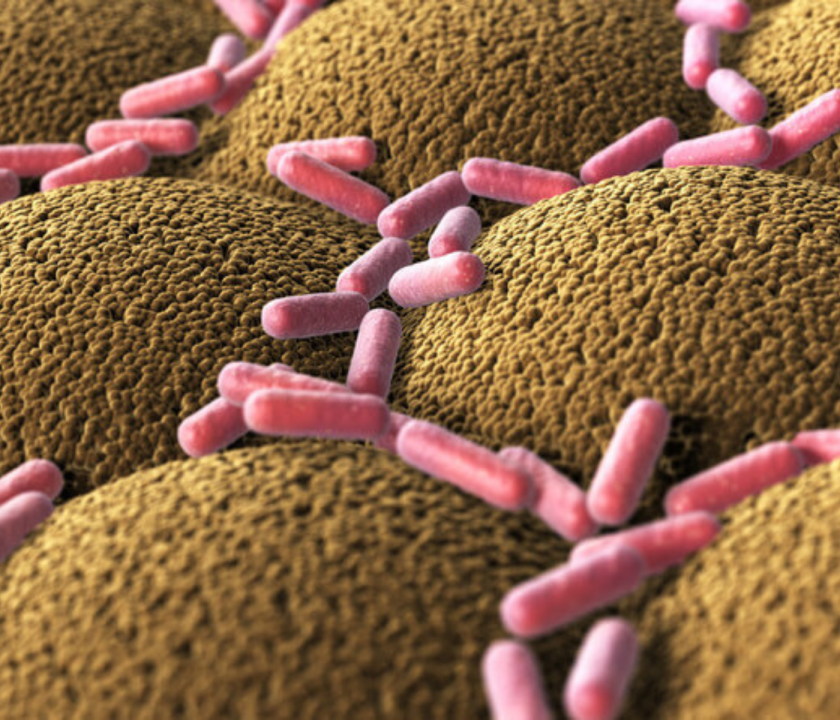Content available at: Español (Spanish)
Since the development period of broilers has been reduced, the importance of these functions in the start-up phase has increased. Nowadays, it is difficult to reach a weight at normal slaughter age if the growth rate is delayed during the first 7 days of growth, regardless of what the reasons for that may be.
GUT FLORA IN CHICKS
The study of digestion in young birds has revealed that the digestive ability of chicks is still “immature” and therefore, a new industry has emerged, supplementing feed with a variety of enzymes and other additives designed to limit early digestion.
The chick is born with an intestine practically free of microbes, so early colonizers tend to predominate. The undigested nutrients will be available to promote microbial growth in the distal portions of the intestine and cecum, and if they include pathogenic bacteria, the chick will be at a disadvantage.
The “normal” gut microbiota develops rapidly, so that the bacterial load and the species present in the hatchery processing belt, inside the delivery trucks and during the first days on the farm will determine early colonization.
The Nurmi concept of manipulation of the gut microbiota is based on the early introduction of non-pathogenic microbes. Ideally, these microbes will help prevent pathogen colonization and competitive exclusion (CE), which will undoubtedly be one of the future management tools used in broiler production.
Early and rapid development of the intestinal epithelium is another prerequisite for normal digestion. Intestinal villi and microvilli grow rapidly in the first few days, and any delay in this process will lead to reduced nutrient uptake and increased nutrient availability for anaerobic pathogens.
The presence of pathogens, mycotoxins, and animal & plant toxins delay the development of microvilli. The selection of highly digestible ingredients, free of natural toxins, is important to ensure a rapid and early bowel development.
Butyric acid, either in food or as a consequence of fermentation of non-starch polysaccharides, is important for the development of microvilli. As the epithelium develops within the microvilli, the secreted mucosa acts as an important barrier against pathogenic colonization and self-digestion by the bird’s own digestive enzymes.
Some bacteria are able to colonize because they are able to break down this protective mucous layer.
Helicobacter pylori, the bacteria that
Keep up to date with our newsletters
Receive the magazine for free in digital version
REGISTRATION
ACCESS
YOUR ACCOUNT
LOGIN
Lost your password?

